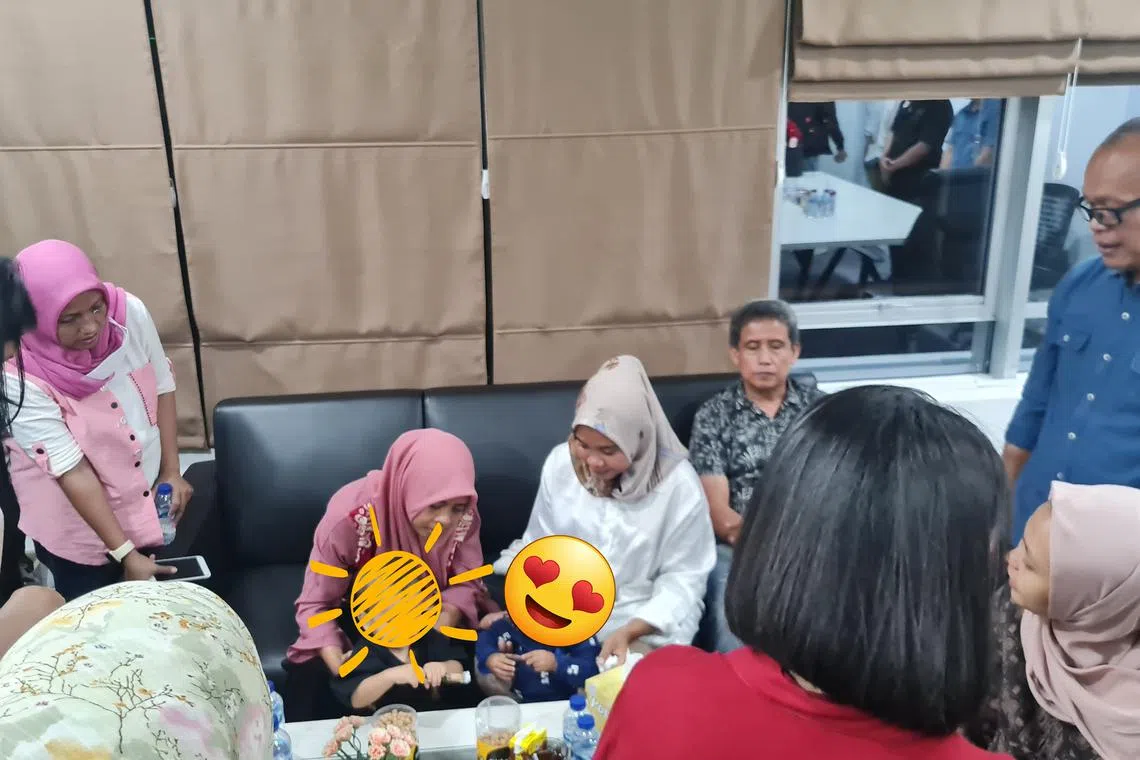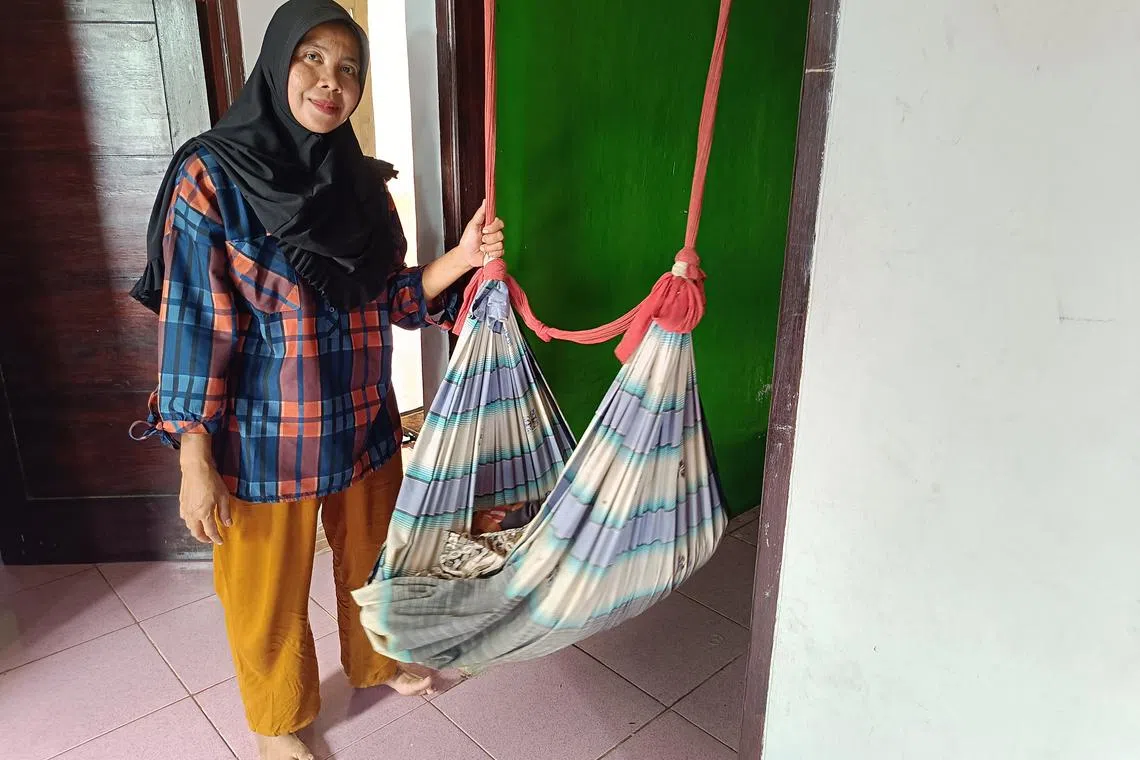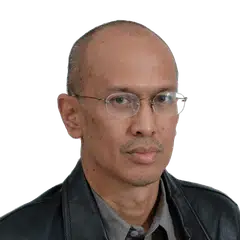Indonesian mums to reunite with biological sons after cradle-swopping case in hospital
Sign up now: Get insights on Asia's fast-moving developments

Ms Dian Hartono (left) and Ms Siti Mauliah holding each others' biological sons at Bogor police station on Aug 26.
PHOTO: INDONESIA POLICE
BOGOR (West Java) - Ms Siti Mauliah remembers vividly how the baby handed to her by a nurse before she left the hospital where she had given birth had a fuller head of hair than the child she had breastfed just a day earlier.
When she reached home, her concerns that something was not right grew when the baby rejected her attempts to breastfeed him. He was also not wearing the clothes she had packed for him.
“I felt no bond with the baby I was carrying... My conscience was rejecting him, telling me this was not my baby. My baby’s hair is thinner and slightly brownish,” Ms Siti told The Straits Times at her home in Mekar Sari village, about an hour’s drive from Jakarta.
More than a year after that incident, it has emerged that Ms Siti’s instincts and concerns were spot-on. The hospital’s negligence had led to her son being swopped with another boy who was born on the same day.
The two Indonesian babies are set to be returned to their biological parents on Sept 29.
There will be a period of acclimatisation to ease the toddlers’ trauma of being separated from the only parents they have known since they were born on July 18, 2022.
A week after taking the baby home, Ms Siti thought her suspicions had been confirmed when she discovered the identity bracelet on the child bore another woman’s name – Ms Dian Hartono.
Ms Siti, who is married to a factory worker, had not checked the bracelet on the day she left the hospital.
But when she went back to the hospital to inform the nurses about her discovery, they turned her away, insisting that the babies had not been switched, only the bracelets.
Ms Siti’s maternal instincts persisted and she remained uneasy. So she persevered and set out to trace Ms Dian and finally found her address.
By the time she visited Ms Dian at her home to tell her about the identity bracelet bearing her name, four months had passed since the birth of their children.
“I felt as if I had been struck by lightning when I saw Ms Dian who was carrying a baby in her arms and had no idea the baby was my biological son,” Ms Siti said.
When she told Ms Dian their babies may have been accidentally switched at the hospital, using the bracelet bearing her name as evidence, Ms Dian did not believe her.
Ms Dian was convinced the baby she took home was her biological son because the bracelet on him also had her name inscribed on it.
“I was about five metres away from Ms Dian at her home. I knew the baby in her arms was mine. I wanted to hold him, but I had nothing to back me up,” said Ms Siti, adding that Ms Dian did not welcome her.

Ms Siti Mauliah will be reunited with her biological son 14 months after a cradle-swopping incident due to errors and negligence at a hospital in Indonesia’s Bogor.
ST PHOTO: WAHYUDI SOERIAATMADJA
About a year after the babies were born, a lawyer, Mr Rusdi Ridho, learnt of the case via word of mouth and arranged for DNA tests for Ms Siti and her baby. The results confirmed her suspicions that the baby was not hers.
Mr Rusdi, who is from the Jakarta-based Sima Lawyers Attorney and Counsellor, subsequently alerted the police, who ordered cross-DNA tests of both babies and both sets of parents.
The police announced on Monday that the results had confirmed a case of cradle-swopping at Sentosa hospital in Bogor. The babies, the police said, would be returned to their respective biological mothers on Sept 29, after gradual adjustment processes were completed.
Ms Siti’s case highlights the lack of awareness about the law and poor access to legal assistance among poor villagers in Indonesia.
Mr Binsar Aritonang, the lawyer representing Ms Dian, said his client was in shock when she found out the results of the cross-DNA tests.
He also said that Ms Dian and her husband had tried for three years to have their first baby.
Mr Jasra Putra, vice-chairman of the Indonesian Child Protection Commission (KPAI), said this was the first case of child-swopping in Indonesia that he was aware of, and he hoped there would not be any more such cases.
Bogor police chief Rio Wahyu Anggoro seconded this view. Observers, however, said there might have been previous cases that were never reported.
In reply to a query from The Straits Times, Mr Gregorius Djako, a spokesman for Sentosa hospital in Bogor, said it will provide compensation in the form of a scholarship for both children until they graduate from high school, besides free medical service until they reach adolescence.



